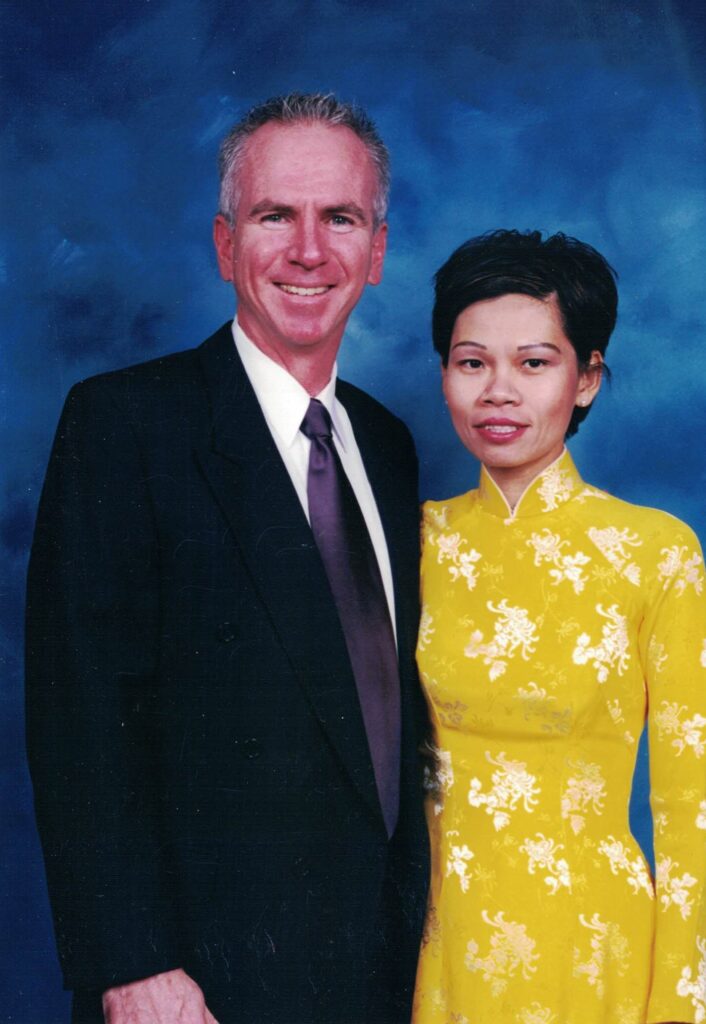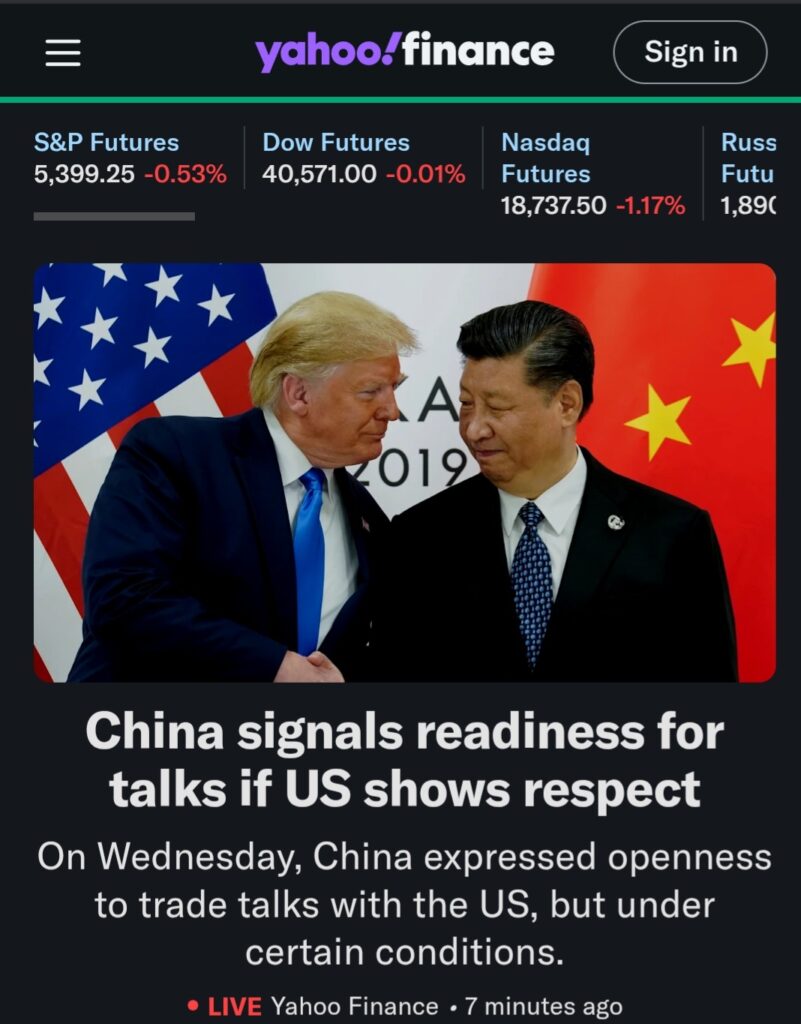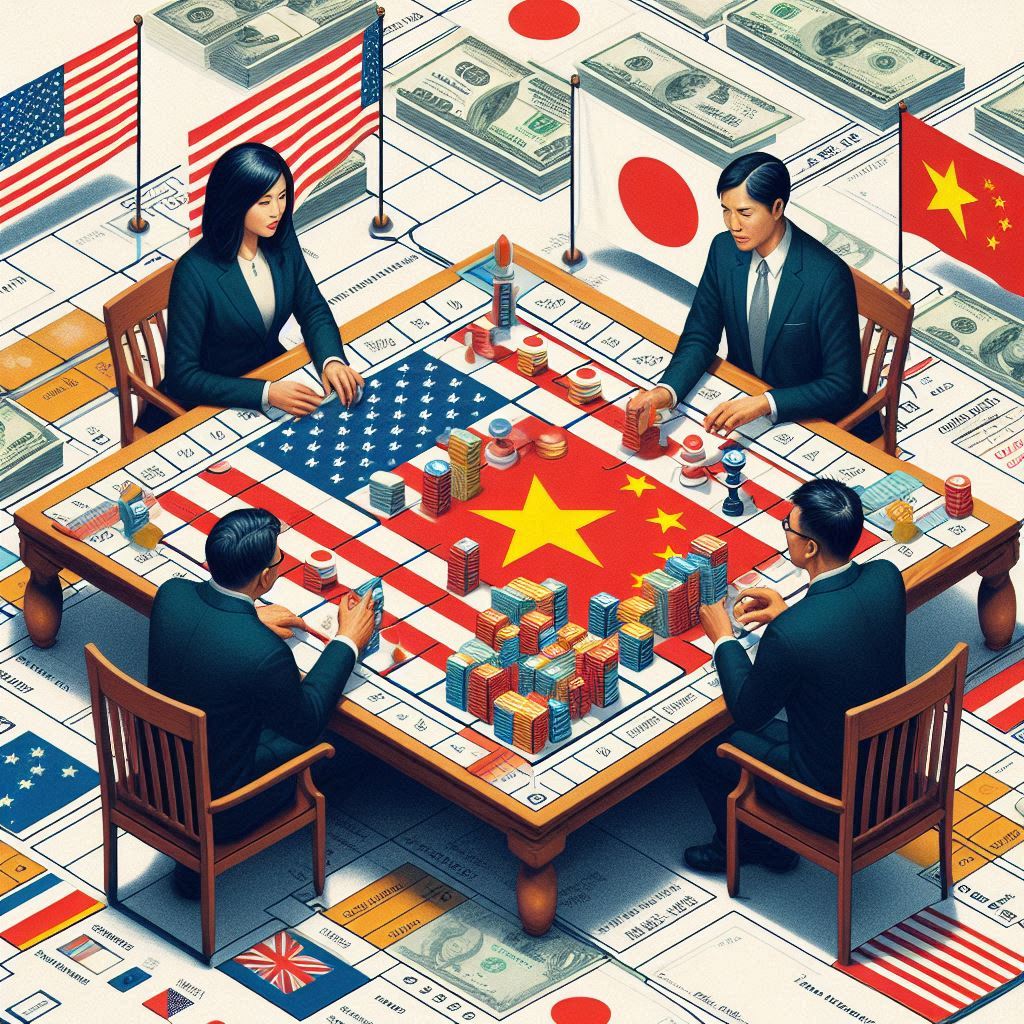How to Negotiate with Asian Cultures
A Potential Bond Wars Scenario & Introduction of “Bond Wars: Markets, Mayhem & Mutiny – Win or Watch Your Economy Crumble” (The Board Game)
What sparked this article was watching the United States fall over itself in its business relations with our Asian friends. While the Trump Administration levied tariffs on Asian cultures, even referring to derogatory pronunciation of the word “China,” the U.S. forgot that the Asian markets had embraced the U.S. Dollar like a couple spinning in a Viennese waltz. The U.S. stopped mid-dance on the ballroom floor to demand tariff taxes from from its long-term partner.
Will Japan stop the music and sells its $1.7 trillion U.S. Treasury Bonds in January 2025, leaving the U.S. standing alone on the dance floor? Whether this remains a fanciful Strauss Viennese waltz “Dance of the Bonds” or a terrible reality, let the reader apply the lessons of this article to prevent such scenarios, hopefully before they become a reality of Asian countries dumping U.S. Treasuries.
At the postscript of this article, is included a description of “Bond Wars: Markets, Mayhem & Mutiny: Win or Watch Your Economy Crumble” (The Board Game). The elements and strategies are more enticing than a who-done-it novel.
To help the reader appreciate Asian cultures, stop reading and binge watch the following movies on your streaming device:
The Original Japanese “Shall We Dance?”
The “Ip Man Series” with Donnie Yen
Binge Watch Ip Man 1 through 3. For Extra Credit Watch IP Man Legacy an Ip Man 4.
The year was 1996 the Japanese hit movie “Shall We Dance?” arrived. The American remake with Richard Gere and Jennifer Lopez came to the U.S. in 2004 with the same name. During this time I left the pastoral ministry and entered the insurance work world, and, as a single person rented out rooms in my house. One of my renters, Edward, studied Finance at the Thunderbird School of Global Management in Glendale, Arizona. During this time and the few years that followed, I learned about Asian culture and took up ballroom dancing. As head of the China Club, Edward invited me to the Harvest Moon Festival, which typically occurred in mid-September to early October. The Chinese Harvest Moon Festival celebrates family, friendship, and the harvest. As I enjoyed the mooncake, I reflected on my friend and renter to taught me much about Asian culture.
I am also indebted to a friend and dance partner I met during this time, whose family came to the United States as Vietnamese refugees. Lisa taught me over the ensuing years all that was good about the Vietnamese culture. While I have been married to my loving wife, Carol, for over 20 years, the treasure lessons of Vietnamese culture remains with me.

Now, that we have established some framework, history, and current issues, let’s dive into how Americans can negotiate with Asian cultures. Please note that the author does not intend to lump Asian nations into one group, considering their distinct and historical identities. This article hopes to provide some general guidelines that could help to correct course on our business relations with our Asian friends.
Asian Culture Remembers History
When you are friends with a Vietnamese, you are friends for decades. American business thinks in terms of how stocks are trading today or how a business is performing this quarter. Asian businesses remember when “gunboat diplomats” sailed up their river and demanded their resources. Watch the Ip Man series and you will find that Ip Man (Donnie Yen) presents himself as quiet, humble, and unassuming Master of Wing Chun Kung Fu. The Western character adversaries portray as supersized bullies, such as the British boxer “Twister” (Below). The epic fight scene between Mike Tyson and Ip Man captures what the Chinese/Asian people want — to be respected. Like Ip Man, they may appear quiet and assuming, but in truth they have the eye of the tiger.

Mike Tyson serves also as our teacher. Though he battled Ip Man in a glass-crashing tempest, the scene ended with two masters nodding to each other in mutual respect.
Asian Culture Revolves Around Family and Group Identity
The Americans practice “WIIFME,” or, “What’s In It for Me?” In the images below, the American is portrayed they often are in Ip Man as loud and demanding. In the scene below, the red-haired devil sits flush with cash and wants everyone to know it. He doesn’t care that a line of people are waiting patiently outside. He brought his dogs in with him, without inquiring if the place was pet friendly. In the first scene, he yells orders at the sushi chef, “Hey, Cookie! My plate’s too small! Bring me more.” The truth is he wanted extra to take home to take to his hotel to feed his dogs.

“Hey, Cookie! My plate’s too small! Bring me more!”
Asian Culture Dislikes Public Conflict
You’ll notice in the scene above, as the “red haired devil” barks for a bigger plate, the other guests have eyes averted, embarrassed for the sushi chef, who is considered a skilled artisan. The other guests also feel embarrassed for the stranger who lacks humility and refinement. The lack of an immediate verbal or physical response does not mean that the Asian culture is without response.
In a hypothetical “U.S. Dollar Selloff,” the U.S. might complain, “Without warning and without notice, Japan sold off its billions in our U.S. Bonds.” The truth was there was notice and warning — the U.S. made a huge cultural faux pas as it levied its loud tariff complaints and demands for more. It’s not that there was no warning; the U.S. failed to listen to the courteous whispered cautions.
Asian Response is Layered and Strategic
As an insurance adjuster, I always winced when I realized that I would be negotiating an injury settlement with an Asian attorney. No attorney would be red-faced shouting at me, followed by remorse, which I could arbitrage for settlement. The Asian’s negotiation was targeted as a Wing Chun 拳 fist strike to the solar plexus, targeted, focused, with no escape.

“The American Was The Only One Surprised”
The Japanese movie “Shall We Dance?” captures the layers of relationships valued in Asian culture:
Shohei Sugiyama (Koji Yakusho) is an successful account, married with beautiful Masako Sugiyama (Hideko Hara) and has a beautiful daughter Chikage Sugiyama (played by Ayano Nakamura). Despite a good home and a nice family, Shohei is still unhappy, he has no hobbies, and often prefer to be lonley. One day he see another lonely woman staring outside her window. Who is she? And why do all the people who visit her look happy and dancing? One of them is his boss Tomio Aoki (Naoto Takenaka), who now is full of life even though he slack at his work, he is now more warm hearted and fully spirit dancer. Shohei take a chance to visit this woman. Her name is Mai Kishikawa (Tamiyo Kusakari) and she is a former blackpool dancer and she is now a full time trainer in all kind of dancing art with her assistant Tamako Tamura (Reiko Kusamura). With his new hobby, Shohei is now happy, and full of life, and no longer a lone wolf, but a full time dancer. Tamako and Mai sees strong potential in Shohei and recruit for a dance competition. This makes his wife suspicious, without thinking twice about it she hires a private investigator (Akira Emoto) who happens also to be inspired but dancing.
Partial Storyline for “Shall We Dance?”

Christians must agree that God loves the Asian people, considering God made so many of them.
Conclusion: “The Riper the Rice, the More Deeply It Bows” 実るほど頭を垂れる稲穂かな
Minoru hodo a la tareru inaho kana

This Japanese proverb embodies the principle of humility. It means that the more one learns and matures, the more modest and humble they become. For the United States and its business dealings with Asia, the above parable and lessons presented would serve as an excellent reset of its business relationship with the Asian markets. Arguments that, “I’m going to punish you for ripping me off” serves nothing other than reinforce historical archetypes of greedy, red-faced devils who historically visited their shores. Both as an American and as a red-faced Irishman myself, I can speak with truth and love to my fellow “red-faced devils.” Christians must agree that God loves the Asian people, considering God made so many of them.

祝福
Shukufuku,
Pastor Jim
The Financial Curtain Call
Introducing – “Bond Wars: Markets, Mayhem & Mutiny: Win or Watch Your Economy Crumble” (The Board Game)

Bond Wars: Markets, Mayhem & Mutiny

“Bond Wars:” Rules of Play
Objective:
Players take on the roles of economic strategists representing the U.S., Japan, China, and Vietnam. The goal? Control the U.S. Treasury Bond Market by managing yield competitiveness, trade reserves, financial stability, geopolitical trust, and currency strength. The first player to reach market dominance (or force others into financial retreat) wins!
Setup:
- Each player starts with a set amount of capital and a portfolio of bonds.
- A market board tracks yield fluctuations, international trade movements, and geopolitical events.
- Players roll dice and draw “Market Event Cards” that introduce real-world financial scenarios (interest rate shifts, trade deals, currency interventions, etc.).
- Each turn consists of strategic actions where players buy, sell, hedge, and negotiate with others.
Gameplay Mechanics:
- Bond Auctions: Players bid on newly issued U.S. Treasury bonds. Competitive bidding determines who gains long-term financial influence.
- Trade Cycles: Countries with trade surpluses (like China and Japan) gain bonus investment power in the Treasury market.
- Geopolitical Moves: Players can form alliances, apply tariffs, or manipulate foreign reserves to influence the market.
- Currency Wars: Exchange rates fluctuate, forcing players to adapt their strategies.
- Market Shocks: Unexpected events (like financial crises, Fed interest rate hikes, or political uncertainty) shake up the game.
Winning Conditions:
- Market Domination: A player secures control of at least 60% of active Treasury holdings.
- Financial Knockout: A player forces another into a liquidity crisis (unable to repay bond obligations).
- Strategic Victory: A player successfully negotiates deals and secures a long-term bond yield advantage.
Think Monopoly meets global finance, but with high-stakes diplomacy and economic strategy!
Unknown Event Cards:
New Market Shocks (Unknown Events)
Throughout the game, players may draw an “Unknown Events Card”—massive, unpredictable forces that throw the market into chaos. These include:
- Antarctic Melts: Rising sea levels threaten major economic hubs. Players must shift investment strategies based on coastal city vulnerabilities, and the U.S. government may need emergency funding.
- Asteroid Strike: A catastrophic asteroid impact disrupts global trade routes. Players scramble to reallocate reserves, while bond yields fluctuate wildly based on rebuilding efforts.
- Pandemic: A sudden global health crisis causes supply chain breakdowns and emergency government spending. The U.S. Treasury pumps liquidity into the market, but inflation concerns shift strategies.
- Loss of Rule of Law: Lose 20% of your Bonds to country who served notice of lawlessness in your country.
Bonus Win Conditions: Crisis Management
Players can now win through resilience—if they successfully navigate three major market shocks without collapsing their Treasury holdings, they achieve a Crisis-Proof Victory and become the ultimate financial strategist.
This just became the most thrilling and unpredictable economic strategy game ever.
Secret Alliances Mechanics
- Throughout the game, players can secretly form backdoor deals with one another—negotiating bond trades, currency manipulation, or trade agreements without revealing them to others.
- Earn collaboration points.
- Give friendship tokens to build alliances and triple collaboration points.
- Alliances can be temporary or long-term, but at any moment, a player can betray their ally for personal gain (think trade wars, sanctions, or bond market raids).
- Some Market Event Cards allow for classified diplomatic meetings where players exchange strategic information—but revealing too much could backfire!
AI-Controlled Hedge Funds
- Instead of predictable market responses, the game introduces AI-driven hedge funds that manipulate the U.S. Treasury market in unpredictable ways.
- These AI entities buy and sell bonds based on algorithmic decisions, triggering mini-crashes, flash rallies, and unexpected yield shifts.
- Players can try to outmaneuver AI trading bots or exploit their behavior, but no one fully controls them—keeping the game dynamic.
Financial Warfare Mechanics
1. Cyber-Attacks
- Players can secretly hack into rivals’ bond portfolios, causing sudden market disruptions.
- Cyber-attacks may tamper with Treasury auctions, inflating yields artificially and forcing competitors into chaotic bidding wars.
- Some Market Event Cards trigger global cyber-attacks, forcing all players to scramble for damage control.
2. Fake Economic Data Leaks
- Players can release false reports suggesting market instability, manipulating investor sentiment.
- If timed correctly, these leaks crash Treasury bond demand and shift trading behavior—creating openings for players to capitalize on panic.
- However, if another player uncovers the fake data, the scheme backfires, damaging the guilty player’s credibility.
3. Rogue Nation Market Crash
- The Rogue Nation Card introduces an unpredictable foreign entity actively working to tank the U.S. Treasury market.
- This rogue player dumps bonds, causing volatility, devaluing assets, and forcing all players to react.
- Players must counter the rogue nation through diplomacy, intervention, or cutting secret deals.
How to Win: Global Dominance & Crisis Mastery
Global Dominance Victory: A player successfully outmaneuvers cyber-attacks, false leaks, and rogue interference to secure bond market dominance over 60% of Treasury Bonds and ensuring their country’s long-term financial stability.

I have become all things to all people so that by all possible means I might save some. I do all this for the sake of the gospel, that I may share in its blessings.
-From St. Paul in I Corinthians 9:22-23
